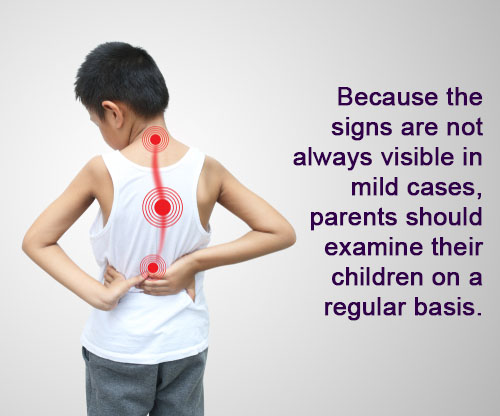Dr Meenal Mavinkurve, a consultant paediatric endocrinologist, guides parents on supporting children with diabetes to thrive. From managing daily care to fostering independence and confidence, she explains how thoughtful guidance can help young patients grow into healthy, empowered adults—proving that a diabetes diagnosis is not a life sentence.
WORDS LIM TECK CHOON
 FEATURED EXPERT FEATURED EXPERTDR MEENAL MAVINKURVE Consultant Paediatric Endocrinologist IMU Healthcare |
“I really want patients and parents to understand that a child with diabetes can do equally well, or even better, than any other child who does not have diabetes,” says Dr Meenal Mavinkurve.”
She iterates that the condition has a solution, is very manageable, and that teamwork between the family and the diabetes team opens all doors of opportunity to children with diabetes.
ADVICE TO PARENTS OF CHILDREN WITH DIABETES
Understand What Is Happening to a Child That Has Diabetes
- Diabetes centers around insulin, a hormone made by an organ called the pancreas.
- Insulin is instrumental in getting glucose, a source of energy, into our cells.
- Diabetes mellitus is a condition where either insulin is lacking (insulin deficiency) or where the action of insulin is diminished (insulin resistance).
- Both insulin deficiency or insulin resistance lead to high levels of glucose in the blood stream, which is diabetes mellitus.
- The most common forms of diabetes mellitus in children are type 1 (T1DM, due to insulin deficiency) and type 2 (T2DM, due to insulin resistance).
Managing childhood diabetes requires a partnership of the parents, the child, and the healthcare team. The healthcare team is usually comprised of a doctor, diabetes nurse educator, dietitian and a psychologist.
Know How to Check Your Child’s Blood Glucose Levels with a Glucometer
A device called a glucometer can be used to do this. Different types have different instructions of use, so it’s best to consult a pharmacist if unsure.
These days, there are continuous glucose monitoring devices that can cost more than a conventional one, but they can be used without having to prick the child’s finger.
“Cooperation and partnership are the glue that supports the child to achieve their potential,” Dr Meenal says.
Know How to Administer, Manage, and Properly Store Insulin
Dr Meenal shares that children with T1DM require insulin with all their meals as well as a long-acting nighttime insulin.
The doctor will typically advise a regime with multiple daily injections best mimics the pancreas, although the regime can vary from child to child.
Hence parents should make sure that they understand the doctor’s instructions for their child’s well-being. Double- and triple-check if one has doubts!
Understand How to Administer, Manage, and Properly Other Medications
Children with T2DM have to take oral medications and, in certain cases, insulin.
Parents should understand what these medications are for and when these medications should be given to their child.
| Most pharmacies will be happy to work with parents on understanding and managing their children’s medications. Just ask to speak to their pharmacist. |
Know How to Manage Your Child’s Diet
Having diabetes doesn’t mean a diet that is completely void of sweets and sugar. It’s all about moderation and following a healthy diet as any other child without diabetes should.
“However, children with T1DM diabetes are required to count the carbohydrates in the sweets they eat and inject insulin for it,” says Dr Meenal, “while for the obese or overweight child with T2DM, there would be a greater emphasis on limiting calorie-dense food options.
| ‘Carbohydrate-free’ foods are not advisable for children with diabetes. Dr Meenal reveals that children with diabetes mellitus should consume a healthy well-balanced diet. It is important to foster a good relationship with food and insulin for children with diabetes from the time of diagnosis. |
Don’t Get Burned Out!
“Parents and patients may get exhausted with all the multiple tasks—glucose checks, counting carbohydrates and calculating insulin doses—and decisions that have to be made for any child with diabetes,” Dr Meenal says.
She empathizes with these parents but notes that they should also remember that not every single day will be a perfect series of glucose readings.
“There will be readings that fluctuate, and achieving perfect glucose readings every hour of every day is not the main objective. It is more important to try to understand and rectify the reasons for those fluctuations,” she advises.
For parents that are confused or feeling lost, there are always advice and help at hand from doctors, pharmacists, dietitians. There are also support groups online that allow parents of children with diabetes to share tips and support one another.
Support Your Children While Guiding Them to Manage Their Medications and Other Aspects of Diabetes Management on Their Own
“Upon a diagnosis of T1DM, there are a lot of new tasks to be learnt and done for the child throughout their lifetime, so and it is understandable that the parent’s first instinct would be to take on all these tasks for their child,” Dr Meenal says.
However, as the child becomes older and independent in other aspects of life, she emphasizes that it is just as important for parents to gradually hand over the responsibility of diabetes self-care to their kids, while continuing to always support them.
“This enables the child to become independent, responsible and confident in their diabetes self-care over time,” Dr Meenal goes on to say.
Some examples of tasks that can be handed over to the child are:
- Get items ready for their glucose check
- School-going children can start to learn how to inject insulin on their own
“It’s about handing over responsibility slowly, while ensuring that you are there as a constant support,” says Dr Meenal.
| This article is part of our series on children’s health, growth, and development. |








